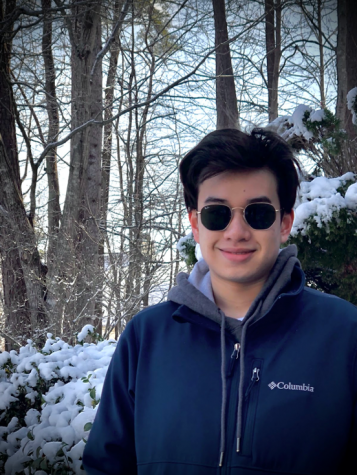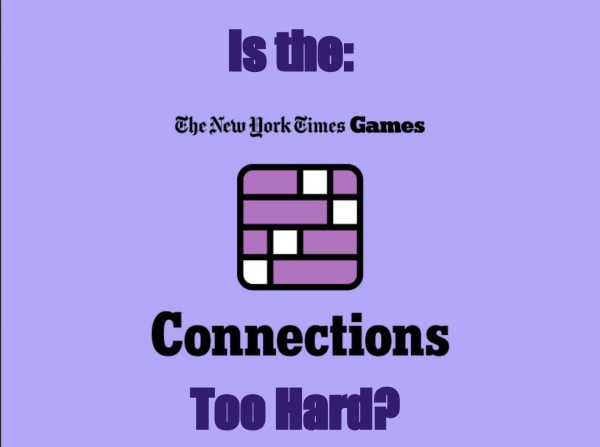Reversing Sleep Deprivation
p deprivatio"Sleepy Sunday" by Dan Morelle is licensed under CC BY 2.0
Sketch evoking a sense of how sleep deprivation impairs our cognitive function
Curiosity never fails to hover over how certain folks manage to flourish with an adrenaline rush while deficient in sleep. They appear unfazed by coating their weariness beyond visibility. However, it remains up in the air if they are truly coping with it mentally in the long run.
In the wake of a productive day operating around school activities, a wide array of students have developed a tendency to catch a drowsy feeling, as the tedious hours linger by gradually. To put this in perspective, the new circumstances in which students learn from the comfort of their homes considerably allow more leeway for altering personal schedules to their liking. Despite not having to rise and shine a little earlier to head to the bus stop, spend more time aesthetically getting ready, or rush to the kitchen to devour breakfast, studies revolving around this situation have made it transparent students still lack unscathed recommended sleeping time while under academic burden.
The general consensus is to get anywhere in between eight to ten hours per night, for individuals ranging from thirteen to eighteen. Yet, getting by with an impressive seven hours is deemed by a vast population as a lucky charm. On average, calculations given showcased 7 out of 10 high school students sneak away within fewer than seven hours, accounting for over one in every two teenagers per se. This impedes them from tapping into numerous dozing stages, like the REM cycle, to thoroughly repair cellular structures, circulate oxygen flow, regulate growth, and archive vivid memories.
Emphasis on how this spurs trouble focusing and trembling at which places immense concern from family members. Complications going downhill may plunge into students earning low grades. Even worse, driving accidents, behavioral and speech delays, social insecurity, diagnosis of depression, and anecdotes of anxiety are foreseeable down the road if not mended. To get to the bottom of backpedaling this gloomy dilemma, it is imperative to dive deeper into the overarching and underlying causes.
The number one line of reasoning behind this detrimental problem is how far too many students stay up past midnight on a daily basis. When this is paired with the blue light emitted from utilizing electronic devices, it poses a greater threat to combating the aspect of how brains sense time for resting. Likewise, it is pivotal to bear in mind how trivial factors, like facing boredom or holding a grudge against someone, weathers the storm in contributing to poor sleep. Moreover, paying attention to natural signals, as in the factor of hunger, is paramount for solving this puzzle, because it ties into the relationship of one human physiological system intertwining with its neighbors.
Unfortunately, everyone strives to be their perfect selves, but it is coherent how sleeping disorders do in fact run in society. Among these are sleep apnea, restless leg syndrome, and narcolepsy. Escaping bad habits of poor patterns of sleep is easier said than done, as vulnerability to stick to routines like glue is appealing. In addition, many find it difficult to leapfrog from familiarity, especially in this instance, when the tea is spilled as many are supposed to dial into laziness as we rewind from boisterous events.
Notably, it is worthwhile to know a contradiction exists with evidence pointing to those who thrive as night owls. These students are prone to be naturally alert at night and are profusely polar opposites to early birds. These disparities are in part to our biological circadian rhythm. However, seldom change is on the horizon without a blueprint for action. The approaches to crush this impediment once and for all are not far and few in between as expected. There are a myriad of solutions to put to the test.
The first down the line is to extinguish what is crystal clear to blame for the flames, so this means limiting exposure to laptops and phones for at least an hour prior to bedtime. During the culmination in early periods of the day, strive to absorb ample sunlight and expend energy towards exercising to loosen up the subconscious sphere. Before hitting the hay, also remember to turn on morning alarms, at a recurring time everyday, so being accustomed to regularity is reached, as opposed to fluctuation. Seize the opportunity of studying from home to schedule rejuvenating power naps, granted the drastic gaps of break in between virtual sessions. Reading as a method to cope with stress and listening to music are other options to ponder as they are indeed peaceful and quiet. Furthermore, certain foods are beneficial to consume for melatonin production, a hormone inducing sleep, preferably almonds, milk, and fish. On the flip side, heavily caffeinated beverages like coffee and energy drinks are best to avoid in abundance for the desired outcomes. Ultimately, mounting insomnia issues will be tackled and joy will emerge before you realize it, if these tips are carried out accordingly.
Please feel free to consult [email protected] to inquire for more advice on this matter & express how this impacts you if it transpires in your life.

Ethan is a junior who finds a sense of comfort in sports, music, culinary arts, and literature. He values spending copious amounts of quality time with...














